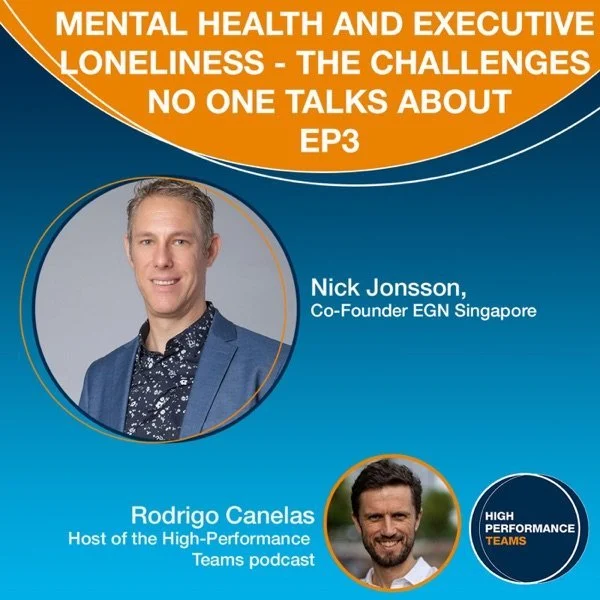Executive Loneliness & Mental Health with Nick Jonsson | EP3
THE HIGH-PERFORMANCE TEAMS PODCAST
Mental health and executive loneliness – the challenges no one talks about | Nick Jonsson | EP3
Overcoming burnout, mental health challenges, and suicidal thoughts requires a multifaceted approach that emphasizes self-awareness and proactive strategies. First, recognizing the signs of distress is crucial; common indicators include persistent fatigue, disengagement, and feelings of isolation. It's essential to foster vulnerability as a strength, allowing individuals to express their struggles and seek support. Implementing structured steps can assist on this journey: prioritize self-care through regular physical activity, establish meaningful connections with others, and practice mindfulness or meditation to ground oneself in the present. Professional help should not be overlooked; therapy can provide tools for processing emotions and developing coping mechanisms.
By addressing these components holistically, it becomes possible to navigate the complexities of mental health and build resilience against the pervasive effects of executive loneliness. This approach involves integrating various aspects of well-being, such as emotional support, self-awareness, and work-life balance, creating a comprehensive framework for individuals to thrive. Engaging in open conversations, fostering connections within professional networks, and prioritizing self-care practices can mitigate feelings of isolation. Moreover, recognizing the signs of executive loneliness and actively seeking solutions can empower individuals to take proactive steps toward enhancing their mental health, ultimately leading to a more fulfilling and productive life.
Published: 2022-06-06
LISTEN ON:


